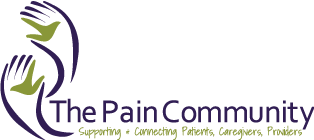Cancer Pain Overview
Leave a review

Pain is the result of a physiological series of electrical and chemical events that occur in the body. The International Association for the Study of Pain defines pain as “an unpleasant sensory and emotional experience associated with actual or potential tissue damage or described in terms of such damage.”
Nutrition During Cancer Treatment
Leave a review

Benefits of Good Nutrition During Cancer Treatment Cancer treatments, and sometimes the cancer itself, can make it challenging to maintain a nutritious diet. Side effects like nausea, fatigue, taste changes and dry mouth can impact what you can eat and have an effect on your overall nutritional status. Each cancer patient’s nutritional needs are unique. More Info »
LiveStrong
Leave a review

We improve the lives of people affected by cancer, now. At LIVESTRONG, we fight for the more than 32.6 million people around the world affected by cancer now. We provide direct services, we connect people and communities with the services they need, and we call for state, national and world leaders to help fight this disease. More Info »
Physical Activity and the Cancer Patient
Leave a review

In the past, people being treated for a chronic illness (an illness a person may live with for a long time, like cancer or diabetes) were often told by their doctor to rest and reduce their physical activity. This is good advice if movement causes pain, rapid heart rate, or shortness of breath. But newer More Info »
First Descents
Leave a review
American College of Sports Medicine Roundtable on Exercise Guidelines for Cancer Survivors
Leave a review

Early detection and improved treatments for cancer have resulted in roughly 12 million survivors alive in the United States today. This growing population faces unique challenges from their disease and treatments, including risk for recurrent cancer, other chronic diseases, and persistent adverse effects on physical functioning and quality of life. Historically, clinicians advised cancer patients to rest and to avoid More Info »
Cancer? More exercise, not less, may be best
Leave a review

For Marika Holmgren, fighting breast cancer was an uphill battle — literally. She got back on her mountain bike shortly after her diagnosis in February 2007, smack-dab in the middle of chemotherapy. “The treatment is so intense — it strips everything away. You’re physically and completely changed,” says Holmgren, 40. “I was trying to retain More Info »
About Jane Tomlinson
Leave a review

Jane Tomlinson was from Rothwell and was originally diagnosed, in 1990, with breast cancer when she was just 26 years old. A tumour in Jane’s lung grew so large that it made her breathless. Then in August 2000 a scan revealed multiple secondary cancers. Jane’s diagnosis was terminal. But despite the odds, Jane was determined More Info »
Coping with Cancer Magazine
Leave a review

The Coping with Cancer website is a complete online experience that educates and inspires. It is presented in a warm and friendly, easy-to-use format, and provides knowledge about living with cancer, hope, and inspirational topics. The Coping team is constantly adding relevant articles and trustworthy resources. The website is provided as a public service by Coping with Cancer magazine and does More Info »
